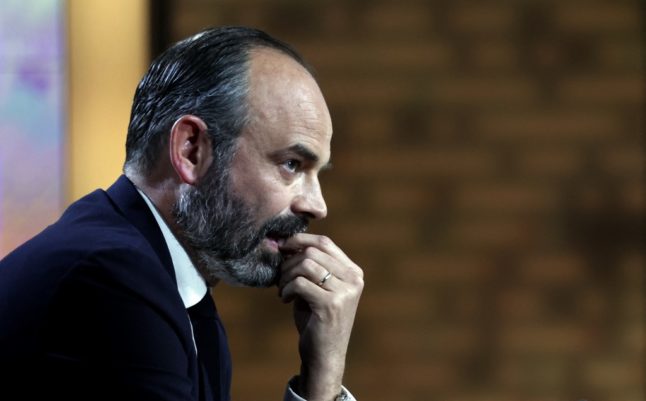Philippe, who was almost unknown nationally when President Emmanuel Macron appointed him premier in 2017, retreated to the relative obscurity of his post as mayor of the Normandy city of Le Havre.
But after being thrust by Macron into the frontline of battling the “yellow vest” protests, strikes on pension reforms and then above all the Covid-19 pandemic, Philippe left office enjoying unusually high popularity and visibility for a French premier.
The question now is could Philippe – who left the main right-wing Les Républicains (LR) party ahead of becoming premier – now be plotting a course to challenge his former boss in 2022 presidential elections?
After keeping a low-profile for nine months, Philippe has suddenly reemerged over the last days, giving print and TV interviews and on Wednesday published a book he has co-written about his stint as prime minister.
But in a series of philosophical and sometimes sphinx-line musings on loyalty and freedom, he has left commentators scratching their heads over whether he plans to stand against Macron.
ANALYSIS: Four key questions on France’s 2022 presidential election
‘Freedom’
“The ambiguous game of Edouard Philippe is annoying the Macronistes,” said the Le Monde daily, using the term employed in France for diehard Macron loyalists.
“Edouard Phillipe: Is he loyal or a rival?” asked the left-leaning Libération on its front page Wednesday.
“The former prime minister is back on the national scene.”
After a listener on France Inter radio Wednesday told Philippe in a phone-in he would vote for him in a presidential election, the former premier let the speculation bubble further.
“I have a complete freedom today… If I can weigh into the public debate – and not just the presidential elections – then I will feel I am taking my responsibilities,” he said.
“I want no-one to doubt neither my loyalty, my liberty nor my desire to serve the country,” said Philippe, who conspicuously never joined Macron’s ruling Republic on the Move (LREM) ruling party.
In an interview with the Le Point weekly published last week, Philippe had said he has “no intention of seeing my convictions or my ideas go to waste without fighting for them,” adding he liked “to be in charge.”
Philippe had impressed with his earnest, realistic but assured tone during the darkest days of the pandemic’s first wave. His rising popularity was reportedly one reason Macron chose to replace him with Jean Castex in a reshuffle in July 2020.
‘Betrayal’
“He left in a state of grace, with his popularity at its height,” said Frederic Dabi, deputy director general of the Ifop pollster, told AFP.
“But popularity is not worth anything if it is not used,” he added.
Most analysts expect the 2022 elections to become a duel between the centrist Macron and far right leader Marine Le Pen.
READ ALSO Five minutes to understand how France’s 2022 presidential election will work
But the emergence of a strong candidate on the right could upend calculations and even raise the possibility of one of the frontrunners being knocked out in the first round.
Former minister Xavier Bertrand, another right-wing heavyweight, has said he plans to stand. Like Philippe, he is no longer a member of The Republicans party.
Figures within The Republicans – the party of former French president Nicolas Sarkozy whose lingering ambitions may have been ended by a graft conviction – have made clear they won’t ever forgive Philippe for joining with Macron.
“His arrival as prime minister was shrouded in the betrayal of his political family and his ideas,” said the party’s deputy leader Guillaume Peltier.
“To entrust the future of France to him is like the Roman Empire entrusting its destiny to Brutus,” he said.



 Please whitelist us to continue reading.
Please whitelist us to continue reading.
Member comments